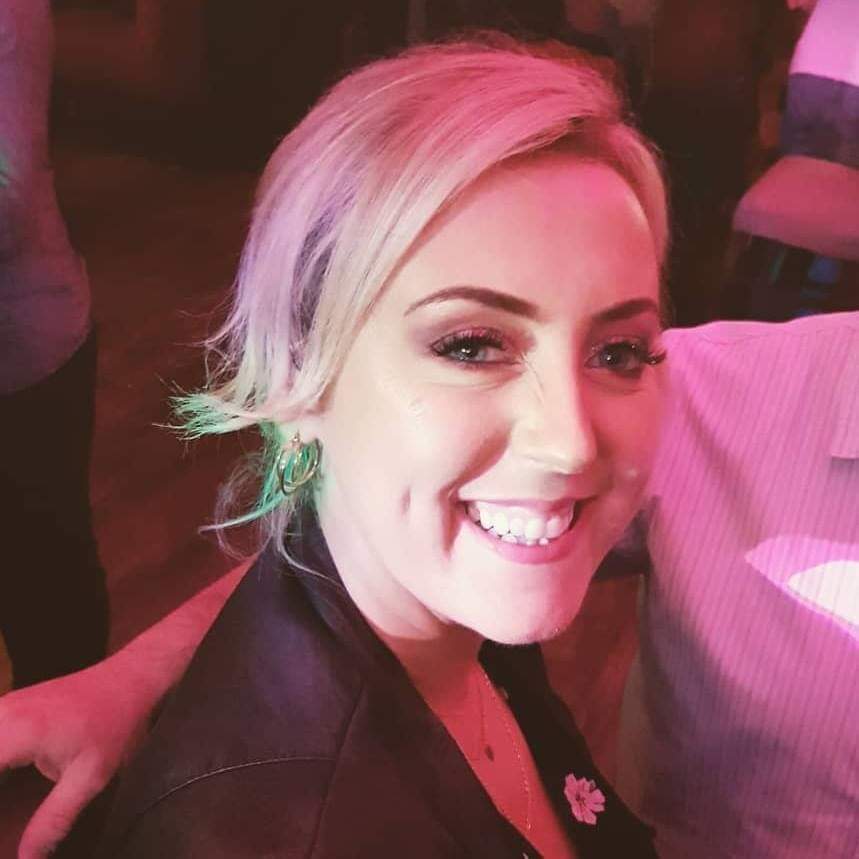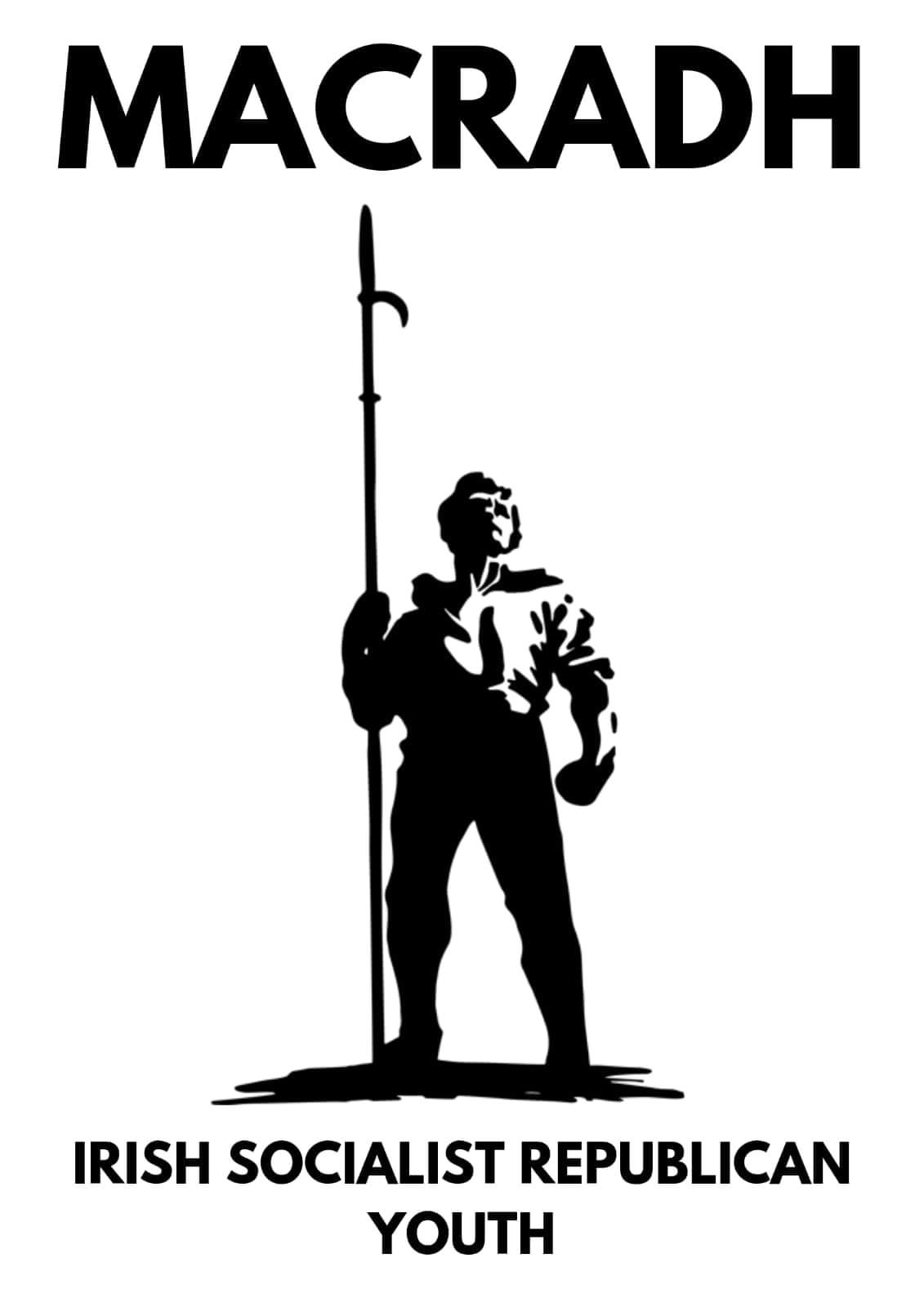As a Proletarian Feminist and Revolutionary Youth Movement, Macradh believes in encouraging the full participation of women in the revolutionary struggle. As part of our work to highlight the role of women in the revolution and to encourage more, especially young women to become involved in the struggle for National Liberation and Socialist Revolution, Macradh is conducting a series of interviews with women engaged in the Revolutionary Struggle.
Today we launch the series with an interview with the prominent Republican, Cáit Trainor from Armagh, British Occupied Ireland.

Q1. Can you tell us a bit about yourself and what inspired you to get involved in revolutionary politics?
A: I am a Traditional Irish Republican; I have been involved in Revolutionary politics properly since I was around 16. I grew up in a traditional Republican household, I was reared with an understanding that we live in an occupied Country. Through reading and experience, I came to understand that the British Government was denying the Irish people its right to sovereignty. I grew up in Co. Armagh and rapidly understood that British occupation was not the only crime against the Irish people, to maintain their occupation they used tyrannical methods such as Internment, murder squads and false charges. I grew up with the British army and RUC raiding my home, all of this and more convinced me that I had my part to play in ridding Ireland of its perennial oppressor.
I joined Republican Sinn Féin, I was active mostly locally at first and in later years, I was elected to the Ard Chomhairle before becoming its Vice President. I left the organisation in 2014 due to internal issues and I now work independently. I have worked on various campaigns for prisoners, been involved in various political projects and currently write a blog, give speeches/seminars on various subjects relating to Irish Republicanism while also privately working with organisations to further certain initiatives.
Q2. Do you feel that female revolutionaries and the role they have played in revolutions in the past is not appreciated and lacks the acknowledgement that it should get?
A: I believe that in recent years there has been a solid attempt to properly recognise the role that Female revolutionaries have played, especially in Ireland since the 2016 centenary Commemorations. I do believe that women’s contribution to the struggle has not always been adequately recognised, however, if we take for example when Mary Lou McDonald was elected as Provisional Sinn Féin president, many people stated that she was the first female president, this was untrue and overlooked the actual first female president Margaret Buckley. Of course, you could say Mary Lou is technically the first president of her organisation, as the current PSF is not the same organisation remotely to the Sinn Féin Margaret Buckley led, but the people stating this would not hold that same opinion.
Q3. From your experience, do you feel that women are under-represented in revolutionary politics today?
A: Yes, very much so and this is something that I would like to change, offhand I can count on only two hands how many female Republicans there are of any prominence, this number is greatly dwarfed in comparison with men. There are many women however involved in Irish Revolutionary politics, just not too many at a leadership or prominent level, with notable exceptions. I think this is the trend in all politics the world over and is something that needs to be addressed.
My personal experience has been that to be taken as seriously as a man you have to be twice as good as one. This is not me saying that I am twice as good as a man, of course, we all have our strengths and weaknesses, however, it has been my personal experience that to make an impact I have at times had to work twice as hard as my male comrades in the same arena, this is a barrier I feel.
Q4. In your opinion can revolutionary organizations do more to recruit female activists and if so what can they do?
A: One of the reasons I believe women are underrepresented in Revolutionary Politics in Ireland is that is seen as a very masculine environment, some women may feel intimidated by taking on a more active role. The lack of acknowledgement of women has fed into this narrative that it is a male-dominated sphere. I believe we can change this by making specific appeals to women to get more involved. Women face high social and cultural barriers to political participation. In particular, greater care obligations, reinforced by public perceptions of a “woman’s role”. Of the women that are involved in Revolutionary politics, they should be encouraged to take on a more active and public role, this will dispel myths and show other women that there is a place for them, a serious place and not just operations like back-office support functions. This should go some way in making women more visible in Revolutionary politics, further asserting the position that a woman’s role is front and centre in the struggle, along with her male comrades.
I think it is important too that we do not fall into the trap of patronising women by creating gender quotas in organisations, if we are truly equal, we should be judged on our merit and not our gender. Gender quotas I believe only serve to infantilise and condescend women; it does not adequately address the issue and does nothing to further the struggle.
Q5. Who would you say your revolutionary heroes are?
A: Máire Drumm has always been someone I look up to a lot, this ordinary woman, who in ordinary circumstances, we would most likely never of heard of. She became a strong voice for the people; she faced down the British forces, spending two spells in jail for her activism, all the while rearing a family of five children, oftentimes on her own while her husband spent time in Jail as a Republican Prisoner. She defied curfews and led the people to oppose it, despite threats and harassment she never wavered, she is the epitome of a strong Irish woman and one I believe both women and men alike should aspire to.
Internationally, Malcolm X has always greatly inspired me. This is mainly down to his forthright honesty, his fiery speeches and militancy, in a time when black people were expected to be seen and not heard, this took great courage. He gave his people hope and spirit to stand up against those who would see them oppressed. If any of your readers have not yet read his writings or listened to his speeches, I very much encourage them to do so.
Q6. As Socialist Republicans Macradh-ISR believes in proletarian feminism believing that true liberation of women will only be achieved when capitalism and the male patriarchy is smashed. What is your opinion on this?
A: I would agree with this analysis very much, for true equality and justice, there is only one way to achieve it, it is not to strive only for equal rights or female empowerment, it’s not to beg for concessions and fair play from our political overlords, but to empower the whole nation. Allowing Ireland to take its place rightful place among the free nations of the world and secure our Socialist Republic, where women would take their place naturally alongside men as equal partners.
Irish Republicanism is forward thinking I believe and always has been in terms of women, if we compare to let us say unionism. If we take for example the 1916 proclamation, its opening line is addressed to “IRISHMEN AND IRISH WOMEN”, now compare that with the opening line of the unionist Ulster proclamation of 1913 that opens with “WHEREAS ULSTERMEN” further this document entirely omits any reference to women. For me, this clearly shows a fundamental difference in ideology.
Before we go about the business of true female liberation, in an occupied capitalist Country we must secure national and economic liberation, James Connolly sums up it up perfectly when he states: “The worker is the slave of capitalist society; the female worker is the slave of that slave.”
Q7. Finally, do you have any advice for women with revolutionary ideals that are hesitant to get involved in revolutionary politics due to under-representation or other reasons?
A: My advice would be to get involved! As women, we make up half the population yet we are under-represented, the future belongs to us as much as anyone, do this for yourself, your children, and your future. We cannot allow decisions to made without us and outsource our political plans for men to complete, we must take our destiny into our own hands.
You have so much to offer! Do not let fear stand in the way of having your voice heard or your contribution counted.
Take your time and figure out what contribution you think you could make, make contact with an organisation that encompasses your ideals and offer your support.
The first step and easiest step to take is to attend an event such as a local commemoration, a political seminar or public meeting, this will allow you to gauge how things work, get to meet new people both men and women and help you take that first step towards engagement.

